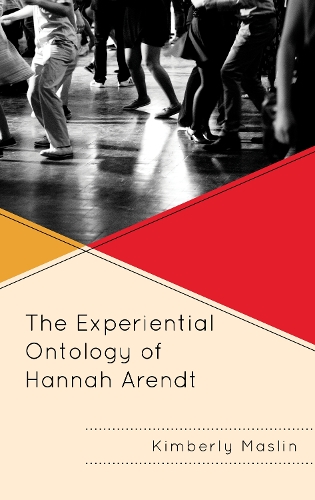
The Experiential Ontology of Hannah Arendt
(Paperback)
Available Formats
Publishing Details
The Experiential Ontology of Hannah Arendt
By (Author) Kimberly Maslin
Bloomsbury Publishing PLC
Lexington Books
20th May 2022
United States
Classifications
Professional and Scholarly
Non Fiction
Gender studies, gender groups
War crimes
Genocide and ethnic cleansing
Physical Properties
Paperback
234
Width 155mm, Height 219mm, Spine 17mm
336g
Description
In The Experiential Ontology of Hannah Arendt, Kim Maslin examines Hannah Arendts political philosophy through a Heideggerian framework. Maslin argues that not only did Arendt grew beyond the role of nave and beguiled student, but she became one of Heideggers most astute critics. Well acquainted with and deeply respectful of his contributions to existential philosophy, Arendt viewed Heideggers work as both profoundly insightful and extraordinarily myopic. Not contented to simply offer a critique of her mentors work, Arendt engaged in a lifelong struggle to come to terms with the collective implications of fundamental ontology. Maslin argues that Arendt shifted to political philosophy less to escape her own disappointment at Heideggers personal betrayal, but rather as an attempt to right the collective flaws of fundamental ontology. Her project offers a politically responsive, hence responsible, modification of Heideggers fundamental ontology. She suggests that Heideggers allegedly descriptive and non-normative insight into the nature of being is necessarily incomplete, and potentially irresponsible, unless it is undertaken in a manner which is mindful of the collective implications. As such, Maslin shows how Arendt attempts to construct an experiential ontology that transforms Heideggers fundamental ontology for use in the public sphere.
Reviews
"Kim Maslins book offers a bold and comprehensive reassessment of Arendts work in relationship to Heideggers. It is lucid, daring, and timely, and will appeal to those interested in harnessing Arendts work in order to understand contemporary events. This is a book of quality and importance." -- Martin Shuster, Goucher College
"Maslin helps resituate Hannah Arendt against her most enduring philosophical background by showing that Arendt was first and foremost a critical (post-)Heideggerian thinker. Arendt consistently took Heidegger's phenomenological insights as her own implicit points of departure, repeatedly criticizing and seeking to move beyond Heidegger in her own work. Building critically on her understanding of Heidegger in this way, Maslin contends, Arendt developed an innovative and coherent ontological approach of her own that remains relevant and challenging today." -- Iain Thomson, author of The Cambridge History of Philosophy, 1946-2015 (2019)
"Kimberly Maslin offers a fresh perspective on 'thinking Arendt through Heidegger.'
She traces the sweep of Arendts work from Totalitarianism to its prescient compatibility with current issues: including fake news, alternative facts, and ultimately identity politics and #MeToo. Maslins argument gives life to Arendts brilliance and relevance for our times, bridging the gap between philosophy and political action." -- Jennifer Ring, University of Nevada
"Kim Maslins book glitters with philosophical and literary erudition. It provides readers with scholarly honed insight into the entirety of Hannah Arendts thinking. As such, it represents a major contribution to applications of political theory in the study of history, particularly genocide. Maslins analysis reveals the central themes and abiding concerns that initially shaped Arendts analytical perspectives and eventually became transformed into her theoretical vision. Maslin brilliantly reinterprets Arendts relationship with Heidegger and shows both Arendts admiration but also the vitality of her critique of Heidegger." -- Edward Weisband, Virginia Tech
Author Bio
Kimberly Maslin is professor of politics at Hendrix College.
